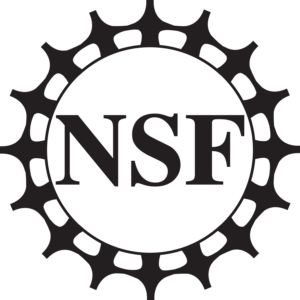
The BID project was supported by a collection of collaborative research grants funded by the National Foundation and awarded to the Institute for Learning Innovation, Oregon State University, Pacific Science Center, The University of Washington – Bothell, The University of Wisconsin – Madison, The Wisconsin Institutes for Discovery, Sciencenter in Ithaca, and Cornell University.
Washington
New York
Wisconsin
Washington State BID team:
The WA BID partnership was an existing partnership between a primarily undergraduate institution and a non-profit science museum at the onset of this project.
New York State BID team:
Cornell University and Sciencenter
The NY BID partnership was a new (Emerging) partnership between an R1 research university and a small non-profit science museum at the onset of this project.
Wisconsin State BID team:
The WI BID partnership was an existing partnership between an R1 research university and a public engagement with science program housed on the UW-Madison campus.
University of Washington, Bothell, WA
Cornell University, Ithaca, NY
University of Wisconsin-Madison, Madison, WI
Pacific Science Center, Seattle, WA
Sciencecenter, Ithaca, NY
Wisconsin Institute for Discovery, Madison, WI
Washington State BID team:
University of Washington Bothell and Pacific Science Center
The WA BID partnership was an existing partnership between a primarily undergraduate institution and a non-profit science museum at the onset of this project.
Washington
University of Washington, Bothell, WA
Pacific Science Center, Seattle, WA
New York State BID team:
Cornell University and Sciencenter
The NY BID partnership was a new (Emerging) partnership between an R1 research university and a small non-profit science museum at the onset of this project.
New York
Cornell University, Ithaca, NY
Sciencecenter, Ithaca, NY
Wisconsin State BID team:
University of Wisconsin-Madison and Wisconsin Institutes for Discovery
The Wisconsin BID partnership was an existing partnership between an R1 research university, University of Wisconsin-Madison and a Wisconsin Alumni Research Foundation (WARF) public engagement with science program on the UW-Madison campus.
Wisconsin
University of Wisconsin-Madison, Madison, WI
Wisconsin Institutes for Discovery, Madison, WI

This material is based upon work supported by the National Science Foundation. Any opinions, findings, or recommendations expressed in this material are those of the authors and do not necessarily reflect the views of NSF.

This project has been made possible by a grant from the U.S. Institute of Museum and Library Services.

Portal to the Public is facilitated by the Institute for Learning Innovation.

